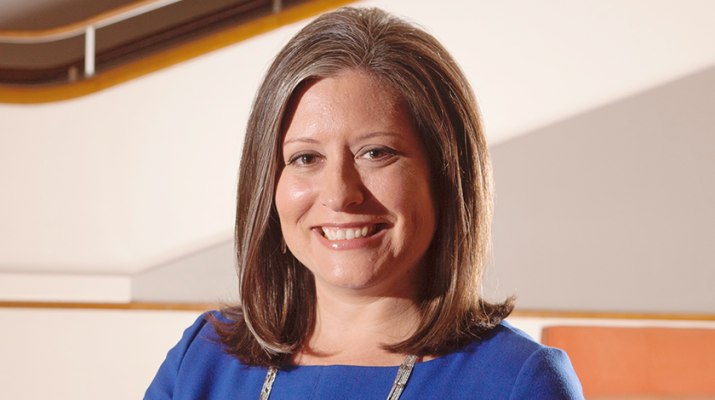Nonprofit agency provides support for those in need
By Jana Eisenberg
Despite its name, the staff at Crisis Services wants everyone in the region to know that you can call its hotline any time, for any reason. You don’t have to be in crisis; you don’t have to be sick in any way.
“People can and do call us when they need supportive counseling, information or referrals,” said Jessica Pirro, the nonprofit agency’s chief executive officer. “Our volunteers and staff can walk people through whatever they’re going through — whether they are a potential client or the family, friend or neighbor of someone.” The staff and organization’s expertise encompasses advocacy and assistance with suicide prevention, outreach to the homeless, domestic violence, rape crisis, trauma, and elder abuse, offering a variety of services and programs across many counties in the region.
Pirro, who has worked at Crisis Services in a variety of increasingly responsible positions since 2001, also hosts a radio program on VoiceAmerica Internet Radio Network called “The Journey: Stories of Crisis and Hope.”
A core piece of the organization’s work is 24/7 crisis response. With 80 full- and part-time staff plus 75 professionally trained volunteers, it is considered, along with law enforcement and emergency medical personnel, among the cadre of “first responders” in situations such as suicide, sexual assault, and other mental health and trauma-related occurrences.
“When someone dies by suicide, say a student in a school, we offer critical incident stress management,” said Pirro. “So when you hear ‘crisis counselors will be available’—that’s us, usually in partnership with the school.”
“We’re also a designated 24-hour responder in rape crises,” Pirro said. “When victims go to the hospital emergency room, we support them — help answer their questions, and afterwards, continue to help with free case management services: we can go to court with them, help them if they need an order of protection, and work through the experience.”
Pirro said that one of the agency’s challenges is still stigma about discussing and treating mental health. “Our vision is to help to keep the community stable and safe,” she said. “To accomplish this vision, we need the community to invest in it, with both financial donations, and the gift of your time, as volunteers.”
Ariel Llewellyn, 25, is one such volunteer. She spends 12-16 hours per month working on the24-hour hotline. “Talking to people is something I’m good at — I try to do it to the best of my ability,” said Llewellyn. “The community is my family; when the community thrives, I thrive. Many people in our community feel like they don’t have anyone who cares about them. I want to be that person who does care.”
She screens calls for suicide, and gives supportive counseling over the phone. “It’s like a friend, who would give that second opinion. Callers will say, ‘Oh, I didn’t think of it that way,’” said Llewellyn. “And they usually feel better and thank the volunteers. If I think someone’s at high risk, who might harm to themself or others, I will call our outreach department; they can go and do a mental health assessment in the field.”
Other areas where Crisis Services is involved include training and education — in schools, on college campuses, and with law enforcement professionals. “On campuses, in our work with sexual violence and prevention work, we educate on healthier sexual behavior and relationships,” said CEO Pirro.
“‘Crisis’ can have different definition for each person. People need empathy and compassion, so that they feel connected and supported,” Pirro summed up. “Hopefully you will never need to access our services, but we want to make sure that everybody always has somebody there for them and are never there alone.”

